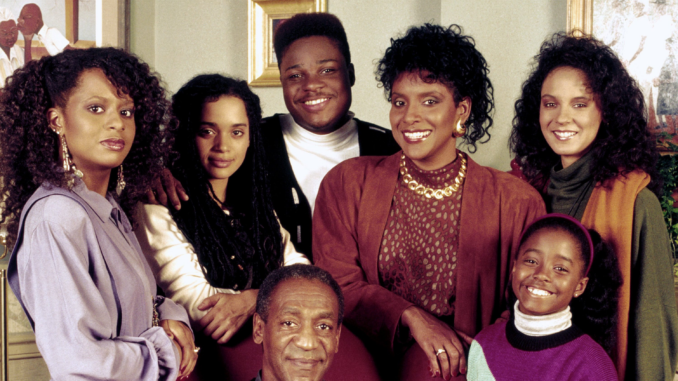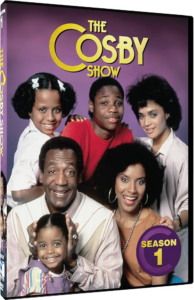
When The Cosby Show premiered in 1984, it reshaped American television and became a cultural milestone. Created by Bill Cosby, the show centered on the Huxtable family, an affluent African American family living in Brooklyn, New York. With Dr. Heathcliff Huxtable (Bill Cosby) as a successful obstetrician and Clair Huxtable (Phylicia Rashad) as a lawyer, the show portrayed Black characters in professional and loving family roles, a departure from the usual stereotypes of Black families on television.

The Huxtable Family: A New Narrative for Black Families
Before The Cosby Show, Black families on TV were mostly depicted in poverty or hardship, as seen in shows like Good Times and The Jeffersons. The Cosby Show broke this mold by showing a prosperous, two-parent family with five children: Sondra, Denise, Theo, Vanessa, and Rudy. Each child was depicted as successful, intellectual, and unique, moving away from the stereotype of the “troubled” Black youth often seen in earlier TV shows.
Dr. Cliff Huxtable was not only a loving father but a groundbreaking portrayal of a Black man who was professional, affectionate, and humorous. His relationship with Clair was key to the show, showing a supportive, balanced partnership that had never been depicted before in such a positive light for a Black couple.
Impact on Racial Representation
The Cosby Show was a game-changer for how African Americans were depicted on television. It demonstrated that Black families could be affluent, educated, and loving. The show was revolutionary because it moved beyond racial issues, focusing on universal family dynamics while maintaining a distinctly Black cultural context. The Huxtables were relatable to all families, but their experiences also resonated with the African American community, where professional success and family stability were rarely showcased on screen.
Music and Cultural Influence
The show also used music to emphasize cultural pride and unity. The opening theme song, “Kiss Me,” became iconic, while episodes often featured jazz and R&B music, celebrating Black culture. Cosby’s own love of jazz influenced the show’s soundtracks and reflected the family’s connection to African American heritage.
Legacy and Influence
The Cosby Show became a major success, dominating TV ratings and inspiring other shows like A Different World and Family Matters. It opened doors for other Black-led sitcoms and provided a platform for many Black actors and actresses. Cosby’s portrayal of a positive, involved father and Phylicia Rashad’s portrayal of an accomplished mother were groundbreaking, offering role models for viewers and reshaping the portrayal of Black families in the media.
Though the show’s legacy has been complicated by Bill Cosby’s later conviction, its cultural impact is undeniable. The Cosby Show helped change the conversation about race and representation in American television and continues to be a touchstone for how African American families can be portrayed in media.
Conclusion
The Cosby Show was a pioneering show that broke new ground in television, offering an inspiring portrayal of a successful, loving Black family. It shifted the narrative around African American families, demonstrating that they could be as complex, joyful, and aspirational as any other. Though its legacy is now intertwined with controversy, the show’s impact on television and racial representation remains profound, leaving a lasting influence on the entertainment industry.
